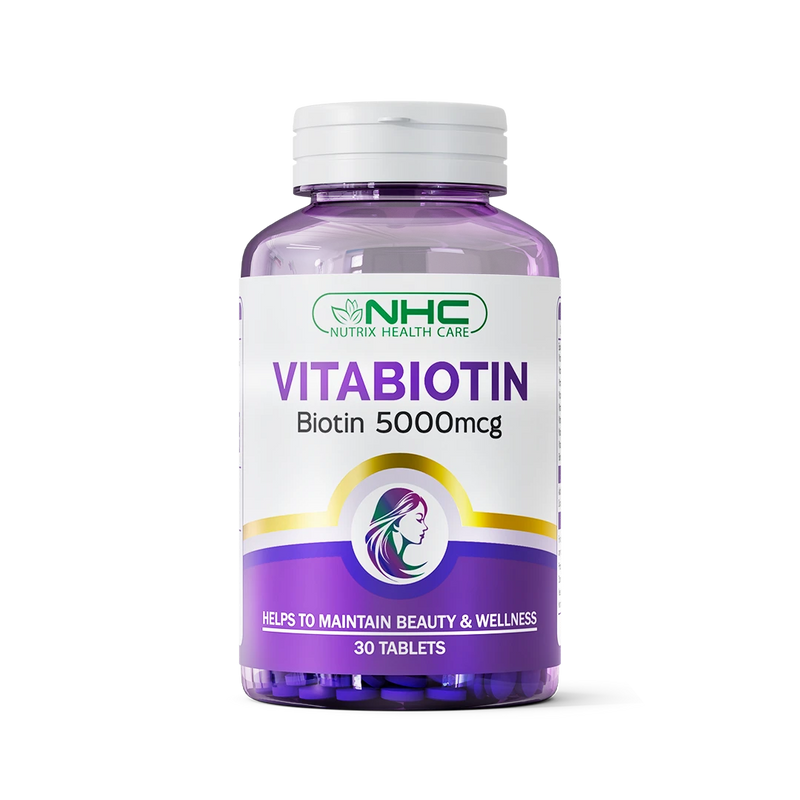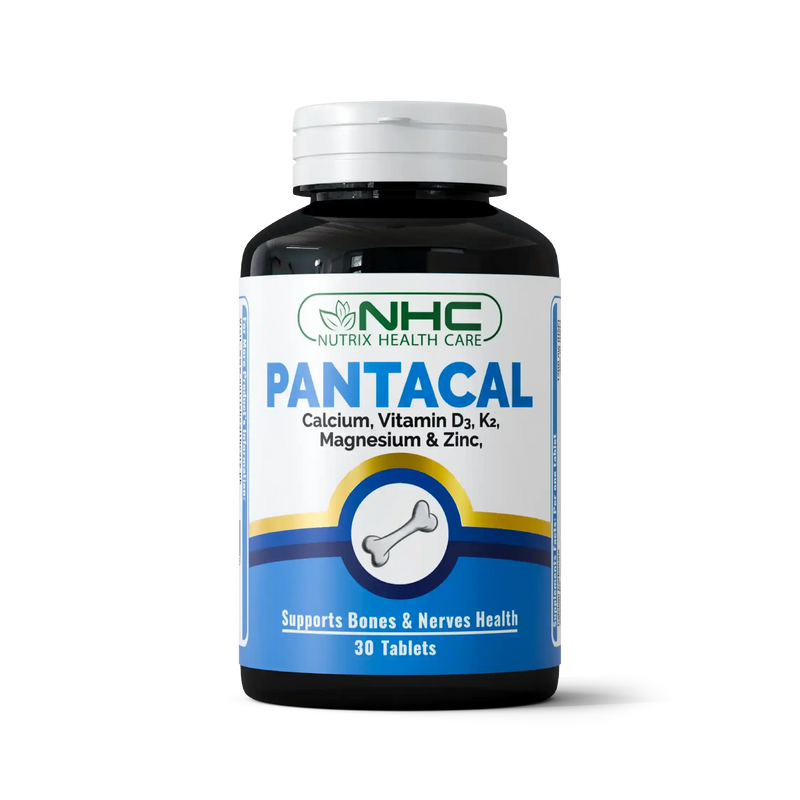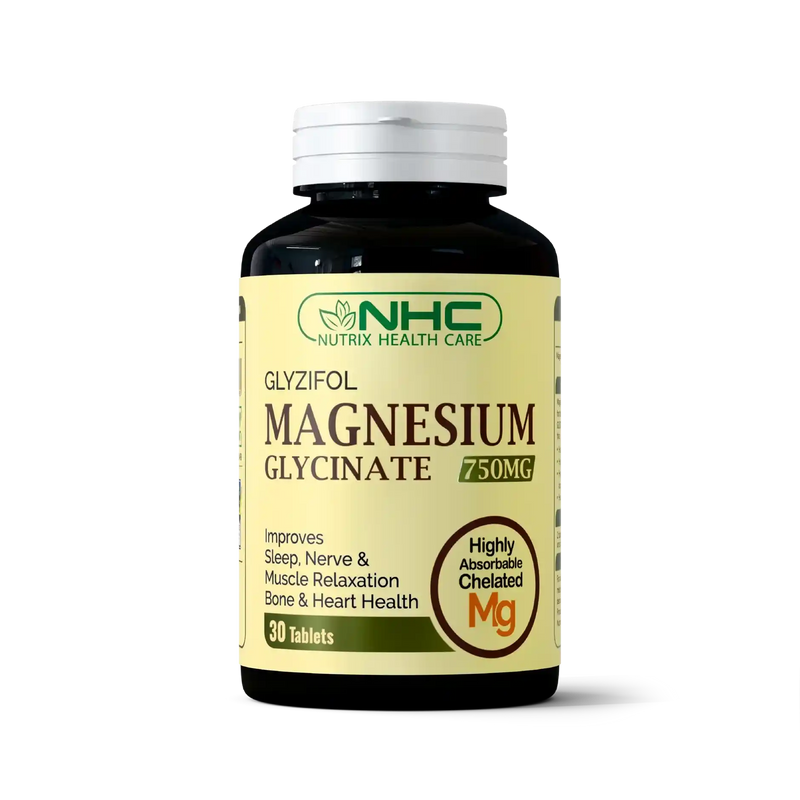Here’s Why Magnesium Deserves a Spot in Your Daily Routine!
Many people fail to realise the importance of essential minerals until it is too late. One such nutrient that is often overlooked is Magnesium. It is famously known as a “miracle mineral” due to its wide-ranging health benefits, such as helping to regulate body functions, reducing stress, generating energy, and supporting overall well-being.
So, does this mineral deserve a prime spot in your daily routine? We are here to convince you, YES, it does!
The Main Role of Magnesium
Magnesium is an essential mineral that plays a critical role in maintaining health. It acts as a cofactor or helper molecule in over 300 biochemical reactions constantly performed by enzymes, including energy production, protein synthesis, muscle movement, and nerve function.
-
Energy Production
This key mineral supports energy production and helps activate enzymes that convert food into energy. If you are constantly feeling low on energy and sluggish, you may have a deficiency.
-
Muscle Movement
This nutrient is also essential for muscle movement, contraction and relaxation. Therefore, a lack of it can lead to constant muscle cramps, weakness, and spasms.
-
Nerve Function
The miracle mineral plays a vital role in maintaining nerve health and function by regulating neurotransmitters, which transmit signals between the brain and the body. It also promotes brain health by reducing inflammation and protecting cells. This essential nutrient also supports nerve regeneration and better cognitive function.
Major Health Benefits of Magnificent Magnesium
1. Maintains Bone Health
Almost 60% of Magnesium is present in bones, while the rest is found in muscle tissues and body fluids. It maintains bone health and structure by regulating Calcium, Vitamin D, and Phosphorus levels and helps utilize them efficiently. For comprehensive bone support, consider a magnesium-rich supplement like Pantacal that combines magnesium with calcium, Vitamin D3, and other bone-supporting nutrients. Hence, a severe deficiency can cause weak bones and an increased risk of osteoporosis!"
2. Supports Heart Health
The essential mineral is part of a matrix including other nutrients like fibre and antioxidants, which protect blood cells. It maintains heart health by regulating heart rhythm, blood pressure, and Calcium influx. Several studies have also shown that Magnesium supplements can lower blood pressure and reduce the risk of stroke due to their role in relaxing blood vessels and improving circulation.
3. Promotes Mental Health

Perhaps the most famous and well-known benefit of Magnesium is its ability to help manage anxiety, depression, and migraines. It is involved in producing a neurotransmitter called serotonin, which helps stabilize mood.
Studies have suggested that Magnesium food supplements may help reduce the frequency and severity of migraines by regulating neurotransmitter function and reducing nerve excitability.
4. Enhances Sleep Quality
This nutrient also contributes to improving sleep quality by regulating the body’s production of melatonin, a hormone that controls the sleep-wake cycle and helps you fall asleep faster. It may help to relax your mind and decrease insomnia symptoms, thereby enhancing sleep quality.
Warning Signs That You Might Not Be Getting Enough
Despite its importance, Magnesium deficiency is often not observed until levels drop significantly. Factors such as poor diet, stress, and certain medical conditions can lead to lower levels, which have been linked to many negative health outcomes, such as:
- Muscle cramps and spasms.
- Vomiting and diarrhoea.
- Fatigue and weakness.
- Insomnia.
- Anxiety and depression.
Add Magnesium to Your Daily Routine
The daily recommended intake is 400–420 mg for males and 310–320 mg for females. It can be obtained from both food sources and in supplement form.
- Food Sources

- Dark leafy greens (spinach, kale, and avocado)
- Nuts and seeds (almonds, peanuts cashews, and chia seeds)
- Whole grains(whole wheat and oatmeal)
- Legumes (black beans, edamame, and lentils)
- Fish (salmon and mackerel)
-
Supplements
Oftentimes, it is difficult to meet the daily needs of this mineral through food alone, so consider taking effective Mg dietary supplements to achieve the recommended daily intake.
If you are looking for high-quality Magnesium tablets, you are at the right place! Nutrix Health Care’s Magnesium combines two forms: Magnesium oxide and Magnesium phosphate, with essential nutrients like Vitamins B6, C, and D3 and Manganese.
This supplement promotes bone nerve, and muscle health. It also helps to manage Premenstrual symptoms (PMS) and migraines effectively.
How to Take: You can take 1 tablet daily 30 minutes after a meal.
Conclusion
In conclusion, Magnesium is an essential mineral that holds a vital position in maintaining the body’s overall function and health. It contributes to promoting heart health, improving bone health, reducing anxiety and managing migraines.
Therefore, a deficiency can lead to serious physical and mental health concerns. You can enhance its levels by consuming certain foods like fish, nuts, seeds, and legumes. Or you can opt for premium-quality supplements like Nutrix Health Care’s Magnesium tablets.
FAQs
Why is magnesium important in our daily life?
It is involved in over 300 biochemical reactions, including energy production, muscle and nerve function, and protein synthesis, along with supporting heart and bone health.
Is it good to take mg tablets every day?
Yes, taking supplements every day is safe for most people, as long as you don't exceed the daily recommended intake.
What does magnesium do for females?
This essential nutrient may help relieve symptoms associated with several conditions affecting women, such as premenstrual syndrome (PMS), polycystic ovary syndrome (PCOS), and postmenopausal symptoms.
How much per day for a woman over 50?
The daily recommended intake for women over 50 is 320 mg.
References
healthline.com/nutrition/what-does-magnesium-do
healthline.com/nutrition/magnesium-deficiency-symptoms
medicalnewstoday.com/articles/318595#faq


